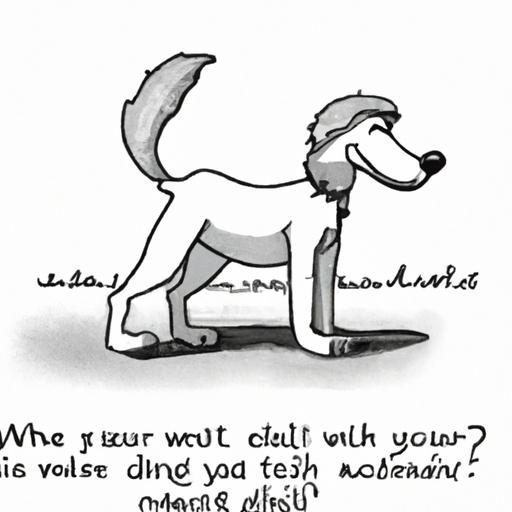As a caregiver, you might have observed your furry friend engaging in a peculiar behavior: scratching the ground after they pee. It might seem like a random act, but it’s actually a complex behavior rooted in their instinctual nature. This article will delve into the reasons behind this behavior, its significance, and what it tells us about our canine companions.
H2: Understanding Canine Behavior
Understanding your dog’s behavior can sometimes feel like trying to decipher a foreign language. But remember, before domestication, dogs were wild animals with a set of instincts honed for survival. Let’s explore some of the reasons why your dog might scratch the ground after they pee.
1. Marking Their Territory
The primary reason dogs scratch the ground after they pee is to mark their territory. It’s their way of leaving a message for other dogs that might pass by.
- Scent Marking: Dogs have scent glands in their paws. When they scratch the ground, they release a unique scent which is another way of marking their territory.
- Visual Marking: Scratching also leaves visible marks on the ground, serving as a visual cue to other dogs.
2. Covering Their Tracks
In the wild, predators could use the scent of urine to track a dog. By scratching the ground and kicking up dirt, dogs can mask the smell of their urine and throw potential predators off their trail.
H2: Exploring the Psychology Behind the Behavior
This behavior is not just about marking territory or covering tracks. It’s also a psychological mechanism.
3. Communication
Dogs use this behavior as a form of communication with other dogs. The intensity and duration of the scratching can convey different messages, such as the dog’s size and status.
4. Instinctual Behavior
Even though your domesticated dog doesn’t need to worry about predators or territory, they still retain these instinctual behaviors. It’s similar to how dogs circle before lying down, a behavior that their wild ancestors used to trample down grass and check for predators.
H2: Is the Behavior a Cause for Concern?
Typically, this behavior is not a cause for concern. However, if your dog becomes obsessive about it, it might indicate a problem.
5. Obsessive Behavior
When the scratching becomes excessive or if your dog seems distressed while doing it, it could be a sign of a medical issue, such as a urinary tract infection or a skin condition affecting their paws. If you notice any such behavior, it’s best to consult with a vet.
H2: What Can You Do About It?
While this behavior is generally harmless, there are a few things you can do if it’s causing issues, such as damaging your lawn.
- Redirect the Behavior: After your dog urinates, distract them with a toy or a treat before they start scratching.
- Training: With patience, you can train your dog to stop this behavior. Use positive reinforcement techniques for the best results.
H2: Frequently Asked Questions
1. Why does my dog kick up grass after peeing?
This is a form of marking territory. Your dog is spreading their scent and leaving a visual marker.
2. Is scratching the ground a sign of dominance in dogs?
It’s more about communication than dominance. The intensity of the scratching can signal the dog’s size and status to other dogs.
3. Should I stop my dog from scratching the ground?
Generally, it’s not a problem unless the behavior is causing damage or if it becomes obsessive.
4. Can this behavior be a sign of a medical problem?
In rare cases, yes. If your dog seems distressed while scratching, or if the behavior becomes excessive, a vet consultation is recommended.
5. Can I train my dog to stop this behavior?
Yes, with patience and positive reinforcement, you can train your dog to stop scratching the ground after they pee.
In conclusion, the behavior of dogs scratching the ground after they pee is a fascinating glimpse into their instinctual world. As a caregiver, understanding these behaviors can help you better connect with your furry friend, providing them with the care and understanding they deserve.



